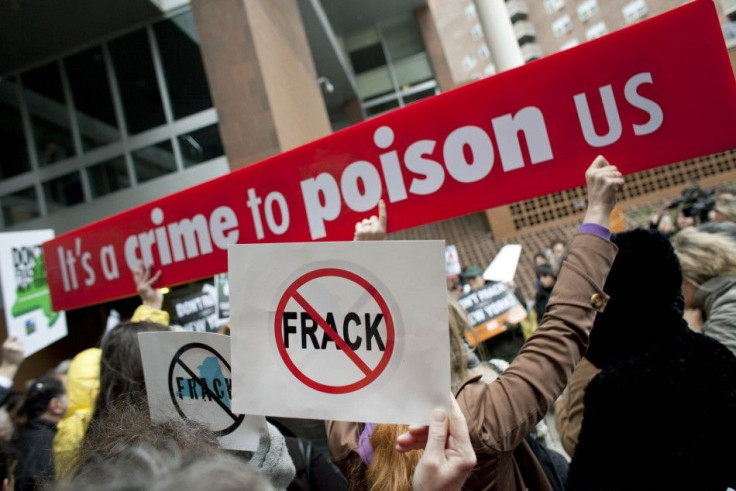After Court Rules, Local Fracking Bans Could Increase in New York

The Village of Bath, N.Y., could be the latest local government in the state to bar hydraulic fracturing within municipal limits. It has scheduled a public hearing for March 19 after which the village board could pass a fracking moratorium.
Located just south of Keuka Lake in Steuben County, Bath's proposed ban follows two court decisions last week upholding towns' rights to use their local zoning laws to prohibit oil and natural gas companies from drilling wells and hydraulically fracturing for natural gas.
Hydraulic fracturing has been under intense scrutiny. The process extracts natural gas by blasting rock formations with water, chemicals and sand. Those against the process say it causes pollution and natural gas companies have come under fire in Pennsylvania where residents in Dimock and in rural communities north of Pittsburgh claim their water has been contaminated by hydraulic fracturing.
In New York, state law says towns or other municipal governments aren't allowed to regulate the oil and natural gas industry. New York has 932 towns and 556 villages within its 62 counties. The two rulings by State Supreme Court justices in two different jurisdictions gave towns oversight over fracking for the first time. Gas drillers plan to appeal.
If Bath imposes a moratorium, it would join the towns of Fremont, Pulteney and Urbana and the Village of Hammonsport in imposing fracking moratoriums, the Bath Courier reported.
The local government efforts are part of a growing move across the state as officials in Albany consider opening New York to the energy boom that has raged in Pennsylvania, Ohio, and parts of West Virginia.
The cities of Buffalo, Syracuse, and Binghamton and six counties have passed similar moratoriums. Experts said last week that number could start rising as the two court rulings embolden townships to enact their own restrictions, and Albany considers legislation to give municipal governments the authority to ban the practice outright, Reuters reported.
© Copyright IBTimes 2024. All rights reserved.











